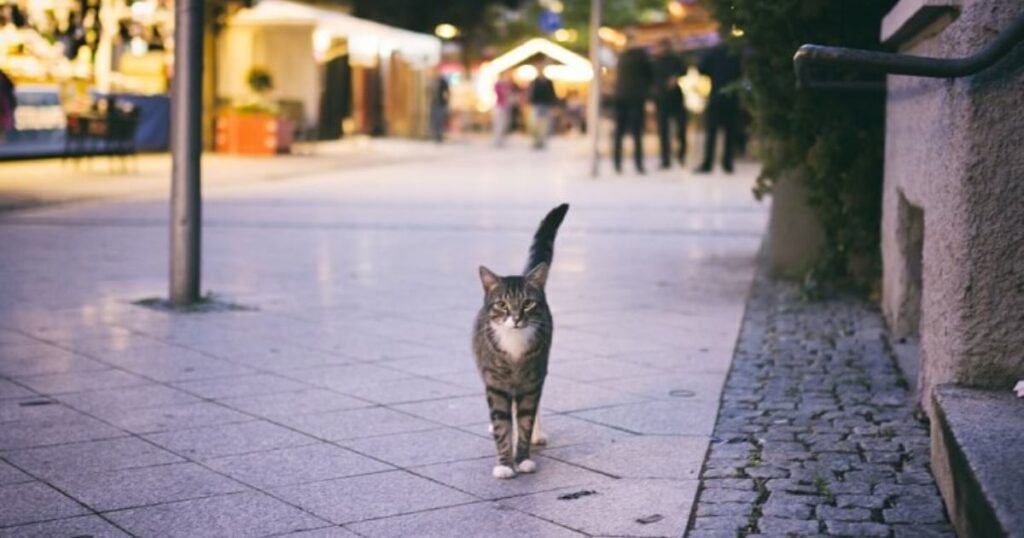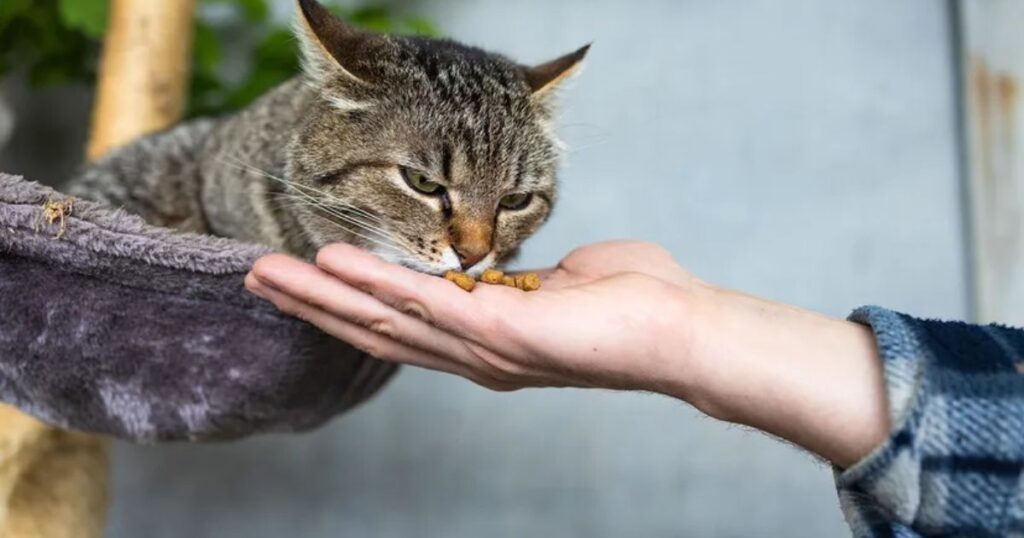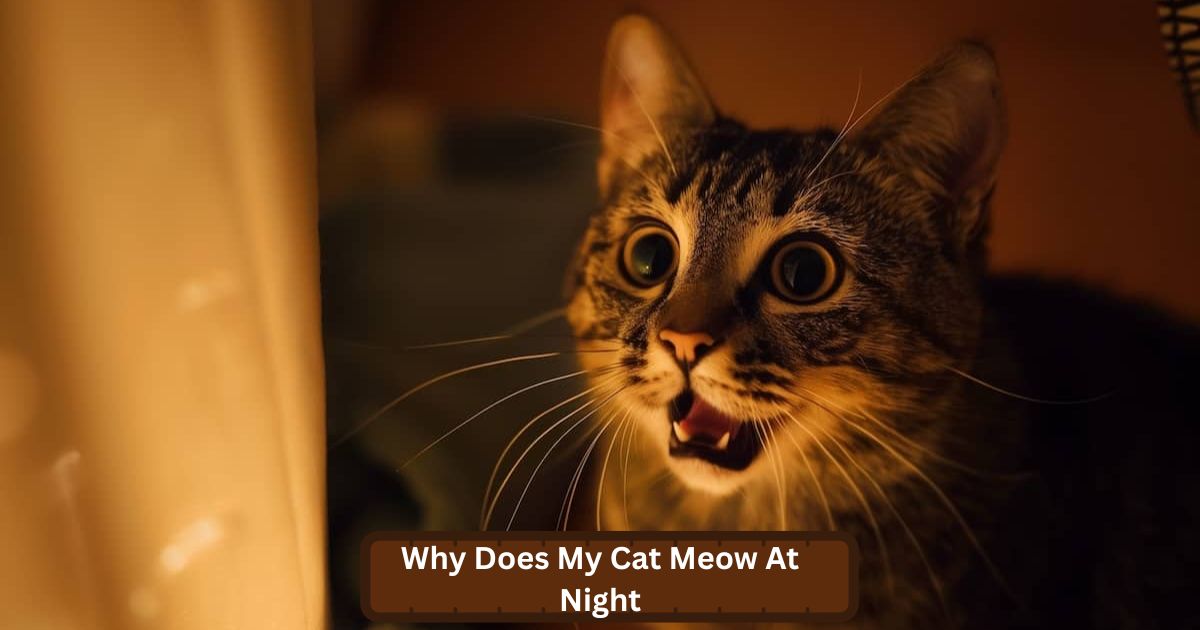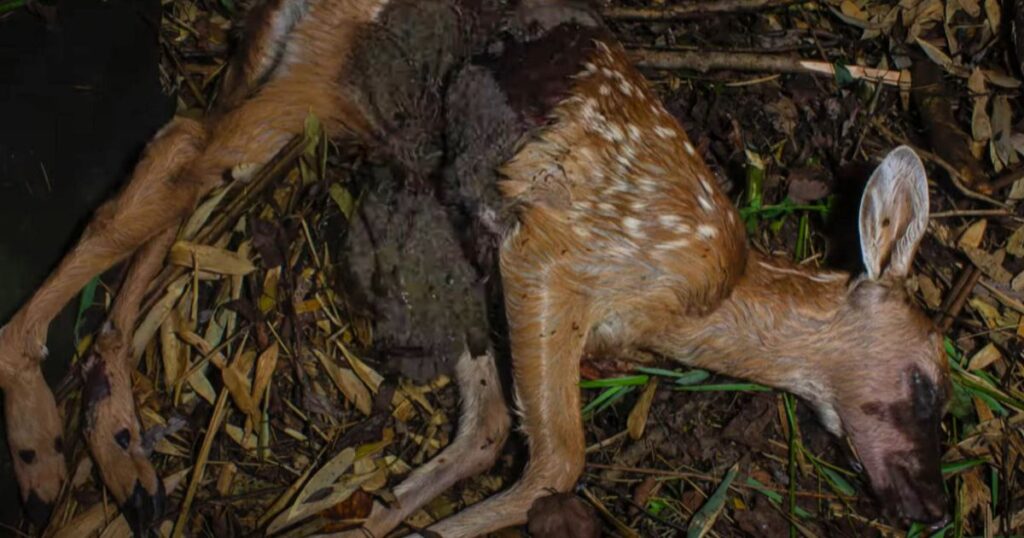Why Does My Cat Meow At Night: Some Reasons & Ways to Prevent it
Have you ever been awake to the incessant night meowing of your cat and wondered, why does my cat meow at night? You are not all alone, most cat owners are puzzled by this behavior which makes no sense at all, and that is why it is necessary to know the origins of this behavior.
This paper is going to delve into the numerous causes that could have your cat talking during the night and offer some ideas that would help you reduce the actions in order to get more sleep.
Why Do Cats Meow At Night?
Why does my cat meow at night? Cats are crepuscular animals, i.e. most active during the dawn and dusk. It might not only be a behavior of their instinct, as your feline friend mews at night. But you must keep in mind the temperament of your cat; certain breeds such as the Siamese are said to be very talkative.
When your cat is meowing at night more than usual, then it could mean that the cat is bored or unstimulated and it might be making an unspoken request by crying out to be helped or to play with its human companions when they are asleep.
Finally, by learning how to appreciate the distinct power of your cat and his/her emotional requirements, you can create a healthy nighttime atmosphere together.
Some Common Reasons For Why Your Cat Is Meowing At Night And What To Do About It
The following are Some common reasons why does my cat meow at night these and they are:
Cats Are Naturally More Active At Night
Cats are fascinating creatures, and their natural instincts play a significant role in their behavior. As crepuscular animals, they are most active during the twilight hours of dusk and dawn. This is when their hunting instincts kick in, making them more vocalising and lively as they mimic the patterns of their wild ancestors.

Understanding this nocturnal behavior not only helps owners adjust but also enhances the bond between them and their feline friends. Embracing their night-time antics can lead to playful interactions and deeper connections, turning what could be an annoyance into an opportunity for shared joy.
Your Cat May Be Bored Or Unstimulated
Many cat owners may not realize that their feline friends can experience boredom or be unstimulated, leading to a host of behavior problems. An indoor cat, confined to a sedentary environment, may express their frustration through vocalizations like yowling or crying at night. These sounds are not merely cries for attention; they often signal unmet physical and mental needs.
Consider incorporating vertical spaces or outdoor enclosures that allow your cat to enjoy fresh air and new stimuli safely. By recognizing the signs of boredom and taking proactive steps to enrich their lives, you can transform your cat’s daily routine into an exciting adventure that satisfies both their physical and mental needs.
A Symptom Of Ageing If Your Cat Is A Senior
As your beloved feline companion enters their senior years, it’s essential to recognize the subtle signs of aging that can indicate a decline in cognitive function. One of the more poignant symptoms is disorientation, which may manifest as your cat wandering aimlessly or staring blankly into space.
This behavior could stem from Cognitive Dysfunction Syndrome (CDS), a condition that affects the brain much like dementia in humans. It’s heartbreaking to witness, but understanding these changes can help you provide better care and enhance your cat’s quality of life.
Outdoor Cats May Feel Confined
Outdoor cats often possess an innate desire to explore the world beyond their homes, yet many find themselves feeling confined when kept indoors for extended periods. As the sun sets and the night sky beckons, it’s not uncommon to hear the plaintive cries of a cat yearning for the freedom of the outside world.
Their energy seems to surge in these moments, as if the moonlight itself ignites an instinctual urge to wander and hunt. This frustration can manifest in behavioral issues, leading to restlessness that impacts both feline and human alike.
Overactive Thyroid Or Kidney Disease
If you’ve noticed your cat’s excessive vocalization during the night, it could signal an underlying health issue like an overactive thyroid or kidney disease. Cats with hyperthyroidism often exhibit new behaviors, including persistent meowing and increased activity levels, especially at odd hours.
This condition stems from an overproduction of thyroid hormones, which can lead to a range of symptoms including weight loss, increased appetite, and restlessness. In contrast, kidney disease may also provoke vocal changes, as affected cats might seek attention due to discomfort or confusion stemming from their declining health.
Cat Yowling At Night Could Be The Sound Of Mating
Cat yowling at night can often send owners into a frenzy of concern, but it’s essential to understand the reasons behind those loud screeching sounds. While many associate this behavior with mating calls, particularly in sexually mature cats, it’s not always about romance.
Neutered or spayed cats may still exhibit nocturnal yowls driven by instinct, often resulting from boredom or a need for stimulation. For these felines, the night becomes an arena for expressing their primal urges, and owners might find themselves awakened by the chorus of howling.
How To Prevent Cat Meowing At Night
Why does my cat meow at night? To effectively prevent your cat meowing at night, it is necessary to get to the root causes of this action. Cats are inherently nocturnal animals and vocal breeds (such as Siamese or Burmese) are more likely to express themselves.
Why do cats meow in the night? When your cat has just learned a new behavior of crying during the middle of the night you are supposed to consider checking on the environment around them in order to ensure that there is nothing that can be stressing them or boring them. Play with them throughout all day with interactive toys in order to have them expend the energy and get a more comfortable night.
Settling on a regular night time routine is another preventive measure. Cats also like routine and therefore having dinner an hour before bedtime can give them the clue that it is time to relax. In case you feel like your cat is meowing because something is physically wrong with it then it is important to take him to the vet to exclude any health condition.
See Also: Frog Spirit Animal Totem: Meaning and Symbolism Explained
Look At Ways To Provide Your Cat With Enrichment Opportunities
Creating an enriching environment for your cat goes beyond just toys; it’s about stimulating their natural instincts and providing opportunities to explore and engage in behaviors that make them feel alive. Consider incorporating vertical spaces into your home, such as shelves or cat trees, where your feline can climb and survey their domain from above. Cats are natural climbers, and giving them the freedom to jump and perch can significantly enhance their mental and physical well-being.
Play With Them Before Bed
Engaging in play before bed can be a delightful ritual that not only fosters bonding but also helps to wind down the day. Choosing the right toys and games can transform the evening energy from a whirlwind of activity to a soothing pre-sleep experience.

Think of this time as an opportunity for both physical and mental enrichment; whether it’s a gentle game of catch with a soft ball or a puzzle that encourages teamwork, these moments create lasting memories while promoting relaxation.
Leave Out Food And Water
Leaving out food and water for your feline friend might seem like a simple solution for a busy pet owner, but it can come with surprising consequences. While the idea of having dry cat food and fresh water available around the clock may seem convenient, it can lead to unintended behaviors.
For instance, some cats may become overly reliant on their bowls, meowing for attention or snacks even when they aren’t truly hungry or thirsty. This behavior can disrupt your peace at night, turning what should be restful hours into a series of persistent calls for food.
Clean Their Litterbox
Maintaining a clean litterbox is essential for both your cat’s well-being and your home’s atmosphere. Cats are inherently fastidious creatures, and a dirty litterbox can lead to undesirable behaviors such as refusing to use it altogether.
When faced with an unkempt toilet, your feline friend may express their discontent by seeking alternative spots around the house or even staging a protest outside the box. This demand for cleanliness is not just a quirk; it’s rooted in their instinctual need for a safe and sanitary environment to do their business.
Give Them Affection
Why do cats cry at night? Affection is a potent instrument that is more than just a physical contact; it is a language of love that helps to create stronger ties. Even such simple gestures like stroking or cuddling can provide an environment of warmth and security and bring not only comfort but a feeling of belonging.

In contemporary hectic lives, it is easy to lose the usefulness of social interaction in favor of digital interactions. But true love be it in the form of caressing or even mere hugging brings out the enhancement that our souls desire and only then can we flourish in terms of both emotions and psychology.
Check If Anything Is Waking Or Disturbing Your Cat
Cats are notorious for their ability to nap through almost anything, but even the most seasoned sleep aficionados can be disturbed. If you notice your feline friend suddenly meowing in the middle of the night or exhibiting restless body language, it might be time to investigate potential distractions.
Automatic lights flickering from outside, be it from passing cars or street lamps, can disrupt their natural sleep cycle, especially for light sleepers who thrive in complete darkness.
Conclusion
Knowing the answer to the question why does my cat meow at night? can assist you in improving their needs and enhancing your sleep. This behavior may be caused by factors like hunting instincts, loneliness or even health problems. You can lower nighttime vocalizations by observing the habits of your cat and stimulating him throughout the day.
It should be borne in mind that a well-stimulated and contented cat is less apt to make you lose your sleep at night. There is no reason to hesitate and seek professional help when it is necessary, and strive to lead a peaceful coexistence with your furry friend.
FAQ’s
Why does my cat meow at night for no reason?
Cats are crepuscular creatures by nature, i.e. the most active at dawn and dusk. The nighttime meowing of your cat might be a sign of instinctive behavior. They are the season when they would normally hunt in the wild.
Should I ignore my cat meowing at night?
It is not always the best idea to ignore your cat meowing at night because it may be an indication that something is wrong with it. Naturally, cats are nocturnal creatures and they can meow due to many reasons. As the desire to get attention, to be hungry, or to play.
Why does my cat meow with a toy in his mouth at night?
Cats meow with a toy in their mouth at night because of a variety of reasons, and the main ones are based on their instincts and natural behavior. A more popular reason is that you have a hunting cat. Cats are natural predators and taking a toy to you and meowing may be their pride in their prey.







